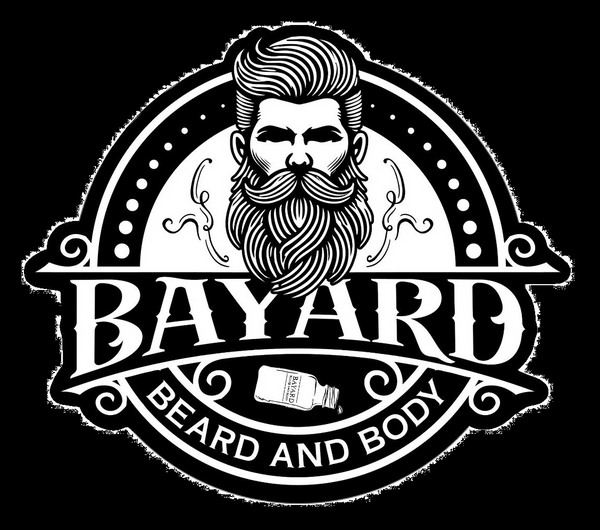
Hidden Dangers in Beard Care
Share
Hidden Dangers in Beard Care: What Ingredients to Avoid
Beards are more than just a style choice—they’re a statement. Whether you’re sporting a short stubble or a long, flowing mane, your beard is an extension of who you are.
As the beard trend continues to grow across the United States, with more men than ever before embracing their facial hair, it’s important to consider not just how you groom your beard, but what you’re grooming it with.
With the rise of beards comes an explosion of products on the market, many of which line the shelves of big-box stores. But here’s the hard truth: while these stores may offer convenience, they often prioritize sales over the health of your beard. Many of the products they sell contain ingredients that can do more harm than good. Here’s what you need to know about what to avoid when choosing beard care products.
The Toxic Trio: Sulfates, Parabens, and Silicones
Let’s start with the big three: sulfates, parabens, and silicones. These ingredients are common in many grooming products, but they’re not doing your beard any favors.
-
Sulfates: Found in many shampoos and beard washes, sulfates are harsh detergents that strip away natural oils from your skin and hair. While they might create a satisfying lather, they can leave your beard dry, brittle, and prone to breakage. In the long run, sulfates can also lead to skin irritation, which is the last thing you want when you’re trying to maintain a healthy beard.
-
Parabens: Used as preservatives to extend the shelf life of products, parabens are linked to potential health risks, including hormone disruption. But beyond that, they can also cause skin irritation and dryness, both of which are detrimental to your beard’s health. Your beard needs moisture to thrive, and parabens are known to sap it away.
-
Silicones: These synthetic compounds are often added to conditioners and oils to give your beard a smooth, silky feel. But don’t be fooled—silicones create a coating on your hair that can block moisture from getting in, leading to dryness and buildup over time. What’s worse, they can be difficult to wash out, leaving your beard feeling heavy and lifeless.
Sulfates vs. Sulfonates:
-
Sulfates (e.g., Sodium Lauryl Sulfate) are powerful cleansing agents commonly found in shampoos and soaps. They create a rich lather and effectively remove dirt and oils but can be harsh on skin and hair, often leading to dryness and irritation.
-
Sulfonates (e.g., Sodium C14-16 Olefin Sulfonate) are also cleansing agents but are slightly milder than sulfates. They work similarly to sulfates in terms of cleaning and foaming, but they are less likely to strip away natural oils, making them a gentler alternative for those with sensitive skin or dry hair.
In essence, while both are used for their cleaning properties, sulfonates are considered a less harsh option compared to sulfates, making them preferable in products for more sensitive or drier hair and skin. Our liquid beard wash uses sulfonate and, is formulated to be the best for your beard!

Mineral Oil and Petrolatum: Not the Moisture Your Beard Needs
Mineral oil and petrolatum are cheap by-products of petroleum, commonly used in many big-brand beard balms and oils. They’re often marketed as moisturizers, but they don’t actually provide the deep hydration your beard needs. Instead, they sit on the surface of your skin and hair, creating a barrier that can clog pores and prevent your beard from absorbing nourishing ingredients.
These ingredients can also lead to a greasy, weighed-down beard that lacks the natural shine and softness you’re after. If you’re looking for moisture, natural oils like jojoba, argan, and meadowfoam seed oil are far superior choices. They penetrate the hair shaft, providing lasting hydration without any of the downsides.
The Rise of the Beard: Why Ingredient Quality Matters Now More Than Ever
As beards become more popular, with millions of men across the United States growing them, the demand for beard care products has surged. This trend has led to an influx of new brands and products, but not all of them have your beard’s best interests at heart. Big-box stores often stock products that are easy to produce in large quantities, using cheap ingredients that are more about boosting profits than caring for your beard.
Your beard is unique, and it deserves products that are crafted with care. Look for brands that are transparent about their ingredients and committed to using high-quality, natural components. These products might not always be the cheapest option, but when it comes to your beard, you get what you pay for.
Conclusion: Invest in Your Beard’s Health
Growing a beard is more than just letting nature take its course—it’s about nurturing and maintaining it with the right products. By steering clear of harmful ingredients like sulfates, parabens, silicones, synthetic fragrances, mineral oil, and petrolatum, you can ensure that your beard stays healthy, strong, and looking its best.
As the beard trend continues to rise, don’t fall into the trap of convenience. Take the time to choose products that truly care for your beard, not just the bottom line of big-box retailers. After all, your beard is an investment in your personal style and identity—it deserves the best.














